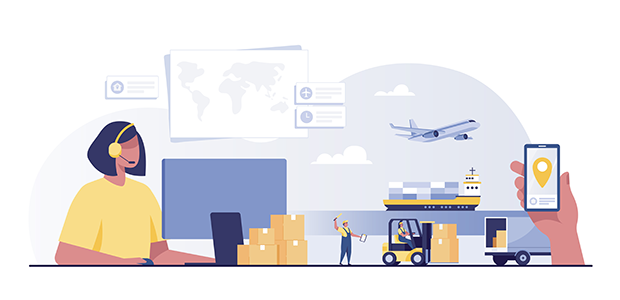
The digital metamorphosis of cargo insurance
In a world rapidly shaped by technology, even the most traditional industries are experiencing profound change.
One such sector undergoing a remarkable transformation is cargo insurance, as digitalisation takes centre stage. Amid this evolution, innovative technologies are redefining the landscape of cargo insurance, leading the way with a significant reduction in risks, enhancing efficiency and visibility, and facilitating seamless communication amongst supply chain stakeholders.
Historically entrenched in manual processes, cargo insurance has faced challenges of inefficiency, opaqueness, and lengthy claims processing. However, with the advent of advanced technology and its potential to address these issues, a transformative shift is taking place within the cargo insurance industry.
Below are a few areas that this digital transformation is affecting most prevalently:
Embedded platforms and data-driven transparency
Central to this transformation is the integration of embedded platforms and data analytics. Forwarders and logistics companies who use an embedded insurance platform to cover insurance processes, from quote generation to policy binding and claims processing, are already making use of the vast benefits the digitalisation of the insurance industry has to offer.
Principally, this approach fosters transparency by enabling stakeholders such as shippers, carriers, insurers, and regulators to access secure transaction records. By doing so, claims processing is expedited, and potential disputes minimised through shared and consistent information.
Embedded platforms and data analytics are further augmented by the inclusion of artificial intelligence (AI). This technological triad allows for the assessment of risks and optimisation of underwriting processes. Drawing from historical and real-time data, insurance solutions can be tailored to the specific needs of clients, enhancing risk evaluation, and enabling more competitive and relevant offerings.
Moreover, by applying technology and machine learning models to collect and process this data, insurers can identify gaps in existing cargo product offerings and develop new insurance products and services that better meet customers’ needs.
Levelling the playing field
A longstanding challenge within the cargo insurance sector has been its inherent complexity, often excluding smaller businesses from participation. To counter this, digitalisation has prioritised simplicity and accessibility. User-friendly interfaces enable businesses to easily secure quotes, purchase insurance, and manage policies independently, reducing reliance on intricate procedures or intermediaries, and streamlining processes to reduce administrative burden these processes often require.
Most importantly, digital cargo insurance platforms provide real-time tracking and monitoring capabilities, allowing SMEs to keep track of their shipments, asses potential risks in transit, and make informed decisions to mitigate those risks in real time. This proactive approach can prevent losses and disruptions to their supply chain.
Takeaways
The evolution of cargo insurance through digital transformation holds valuable insights for the broader insurance landscape. It showcases the power of technology to enhance transparency, streamline processes, and elevate customer experiences. This shift underscores the importance of innovation in tackling industry-wide challenges and yielding tangible benefits.
Ultimately, the digital transformation of the cargo insurance industry represents a new era of safety and sustainability for our sector. It shows the industry is embracing change in favor of enhanced efficiency, accessibility, and transparency. By integrating embedded platforms, data analytics, and AI, the journey towards digitalisation is paving the way for a future where cargo insurance is more adaptable and responsive to the needs of businesses.

